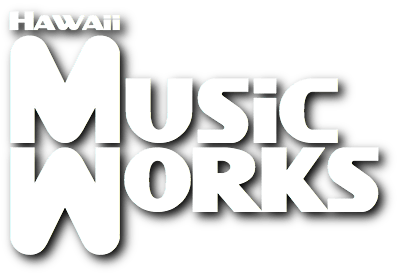WHY YOU NEED TO INVEST IN AN INSTRUMENT IF YOU'RE TAKING MUSIC LESSONS
Hawaii MusicWorks
So, your child wants to start music lessons. That’s exciting! But before you sign up, there’s one important step you can’t skip—getting an instrument. It might be tempting to hold off and see if they stay interested first, but without an instrument to practice on, progress will be slow, frustration will build, and the excitement might fade before they even get a chance to truly enjoy it. Here’s why investing in an instrument from the start is essential.
Practice is Key to Learning
Music lessons typically happen once a week. That’s just 30 minutes out of 168 hours in a week. Without an instrument at home, there’s no way to reinforce what was learned in the lesson. Imagine trying to learn a sport but only touching the ball during practice—it just wouldn’t work! Regular playing time is necessary to build muscle memory, improve technique, and make steady progress.
So go ahead—get the instrument! Your future musician will thank you.
Music lessons typically happen once a week. That’s just 30 minutes out of 168 hours in a week. Without an instrument at home, there’s no way to reinforce what was learned in the lesson. Imagine trying to learn a sport but only touching the ball during practice—it just wouldn’t work! Regular playing time is necessary to build muscle memory, improve technique, and make steady progress.
Interest Grows With Accessibility
One of the biggest misconceptions is that a child (or adult) will develop interest first, and then you can invest in an instrument later. But in reality, interest often builds because they have the instrument in front of them, ready to play whenever inspiration strikes. Having easy access to an instrument allows for spontaneous playing, creativity, and exploration—all of which help fuel motivation and enjoyment.Frustration Sets In Without an Instrument
Imagine signing up for swimming lessons but never having a pool to practice in outside of class. It wouldn’t be long before you felt stuck and frustrated. The same thing happens with music. Without regular practice, lessons start to feel repetitive rather than rewarding, and students may feel like they’re not improving. That’s when they lose interest—not because they don’t enjoy music, but because they aren’t able to engage with it in a meaningful way.You Don’t Need the Most Expensive Instrument
Investing in an instrument doesn’t mean you have to buy the most high-end model. There are plenty of affordable beginner instruments that sound great and are comfortable to play. The key is to get something that functions well enough to make learning enjoyable. A poor-quality instrument can be discouraging if it doesn’t stay in tune or is too hard to play. If you’re unsure what to buy, ask the instructor for recommendations!Final Thoughts
If you’re investing in music lessons, investing in an instrument is just as important—if not more. It’s the tool that makes learning possible. Without it, progress is slow, frustration builds, and the excitement of learning music can quickly fade. But with the right instrument at home, music lessons become an engaging, rewarding journey that can last a lifetime.So go ahead—get the instrument! Your future musician will thank you.
